Book Reviews by Genre: African American
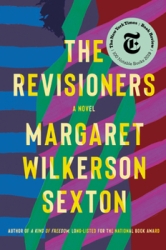
I don’t know about other readers, but generally, as soon as a jacket blurb mentions something like “intergenerational saga” or “centuries-long family lore,” I roll my eyes and drop the book like the proverbial hot potato, sure it’s going to tax me with keeping track of 27 characters and five time periods. For whatever reason, this time, I kept reading past that ominous descriptor, and I’m so glad I did as Margaret Wilkerson Sexton’s moving and engrossing novel, The Revisioners, is one of the best I have read in recent years.
Chapters rotate across three time periods and center on two main characters, Josephine, who was born into slavery but who claims freedom at an early age and lives a long life in Louisiana, and Ava, her great, great-granddaughter, who lives in contemporary New Orleans with her pre-teen son and—in an unexpected twist that becomes increasingly unsettling—her wealthy, white paternal grandmother with dementia. In addition, both Josephine’s and Ava’s own mothers feature vividly in their respective chapters, deepening the layers of national and personal history that Sexton so realistically and poignantly depicts. The maternal line in this family is also characterized by certain gifts of understanding and sight, both earthly and other-earthly, which create a shadowy but certain bond that steadily solidifies among the women as the plot progresses.
Conflicts between our protagonists and somewhat minor but all too powerful white characters in all time periods make for suspenseful, unsettling scenes and, as you might expect, lead to heartbreak and trauma for both Josephine and Ava. Believe me, I cried (well, even sobbed) more than once at the outcome of certain events, but Sexton isn’t after “easy tears”; they would be pointless if not accompanied by genuine acknowledgment of and determination not to hide from our nation’s painful and shameful past, especially on the part of white readers. Even so, the novel’s conclusion (in Ava’s time/place) points towards healing and hope for this family that has endured so much.
I won’t spoil the surprise of the title’s origin and its place in this book (or in which of the three generations of Black American women it is featured), but I found this plot-dependent entity and the way it informs and almost foretells key characters’ lives one of the most poignant and satisfying conceits Sexton employs. I couldn’t recommend this book more emphatically for anyone looking for a serious and unforgettable, not to mention timely, contribution to American literature.
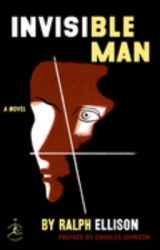
I recently had to read this novel for a class, and I have to say it is very good! While it explores complicated themes such as visibility, African-American movements/social standing, and life in early 1900’s America, it communicates the hardships and intricacies extremely well. The narrator, a black man in the early 1930’s-1940’s, loses his memory of his early life, including his family and even name. He travels through America; experiencing, learning, and exploring what his new life has to offer. Every experience is different, yet still very interesting, which made it feel like I was almost reading separate stories! Yet, it didn’t feel choppy or fragmented in the least. So, I’d highly recommend! I’ve never read any other book like this, and it definitely taught me a lot.
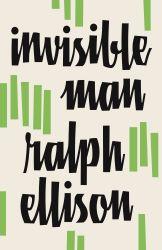
"Invisible Man" by Ralph Ellison is a profound exploration of identity, race, and society in mid-20th-century America. Ellison's masterful storytelling and vivid prose paint a gripping portrait of an unnamed African American protagonist navigating a world that refuses to see him as an individual. Through his journey, the protagonist grapples with the complexities of self-discovery and the nature of prejudice and invisibility. Ellison's exploration of themes such as the quest for recognition and the power dynamics inherent in society resonates with readers long after they turn the final page. "Invisible Man" is a timeless classic known for its insightful commentary on the human condition and the pursuit of identity in a world that often seeks to render individuals invisible.

TW: This book contains racism and police brutality. If either of these topics trigger you, I would recommend finding a different book.
‘Invisible Man’ is a story about an unnamed black man in the 1930s. He attempts to make his way in the world, but is blocked at every turn by society’s barriers and refusal to see him. He goes from university to the brotherhood trying to find his place. The story includes steady commentary on racism that remains prevalent to this day.
Almost all the main characters have a layer of depth to them. From Dr. Bledsoe to Mary, they all have clear motivations and roles in the story that contributes to the themes. The main character in particular surprised me. It’s not uncommon for the point of view character to be serviceable, but not have many defining traits. This narrator did, though. He was an eloquent speaker and was obsessed with his grandfather’s last words. It’s not the most exaggerated personality, but it was clear and consistent.
The plot moves along nicely, never staying in one place for too long. The progression makes sense, and no scene feels wasted.
This is a classic novel for good reason. I would recommend it to those who are looking for a longer, thought provoking read.
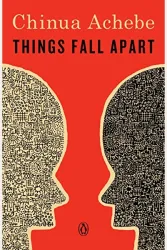
The novel was set down in 1958 by Nigerian writer Chinua Achebe, who was the inventor of modern African literature. It is one of the most widely read novels in the world and also has a prestigious role in African literature.
It tells the story of a great wrestler, Okonkow, who is the best warrior among the people, and he hasn't inherited that honor, fame, and reputation from his father or ancestors, as it happens in most of the cases. He becomes a well-respected man, and the tales of his bravery and fighting spread like a bushfire in the other villages .
Things Fall Apart is a true picture of Nigerian culture, language, living style, their religion, different sorts of gods (God of Earth, Goddess of Fire, etc.), and customs, and the people are very much attached to their traditions and religion. Especially, the proverbs are also a big part of their culture. You could sense their importance from this proverb:
"Proverbs are the palm oil with which the words are eaten "
Okonkow is ostracized form the village for seven years for killing one of the clansmen. In his absence, an Englishman comes into his village, asks permission from the tribesmen to live there, and gets it. That's the point where the Nigerian culture's destruction starts. White men come one by one and build colonies to recite there.
So, their traditions, religion, and gods are all crucified ghastly by white missionaries who call Africans uncivilised, savage, and dark people and say we are the ones who came to give them light and are gonna make them civilised, but eventually they put them into the heart of darkness and are responsible for their destruction.
All the nations are known by their own traditions, culture, religion, and language . How could you make an organised nation by destroying its culture? White men came to show Africans a way to come out of their darkness, but the real darkness was inside them. It is a worthwhile novel and should be read.
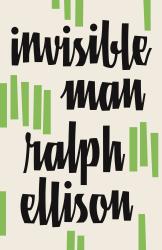
"Invisible Man" by Ralph Ellison is a powerful and thought-provoking novel that explores the complexities of African American identity in a society that refuses to see them as anything but invisible. Published in 1952, the book tells the story of an unnamed narrator who struggles to find his place in a world that constantly denies his existence.
The novel is set in the early 20th century and follows the narrator's journey from his youth in the South to his experiences in the North, where he encounters racism, violence, and exploitation. The narrator's quest for identity is complicated by the fact that he is not only a black man in a white-dominated society but also an individual struggling to define himself.
Throughout the novel, Ellison employs richly symbolic imagery to convey the narrator's experiences and emotions. The use of motifs such as blindness, invisibility, and masks emphasizes the ways in which society seeks to hide or ignore the realities of racism and prejudice. At the same time, the narrator's invisibility serves as a metaphor for the struggle of African Americans to assert their identity and agency in a society that denies them these basic human rights.
Ellison's prose is both poetic and poignant, as he explores the complexities of race, identity, and power. He also addresses issues of class and gender, as the narrator navigates the world of white power brokers, black nationalists, and women who seek to control him.
Overall, "Invisible Man" is a powerful and important work that continues to resonate with readers today. It is a testament to the enduring legacy of racism and inequality in America, and a call to action for all those who seek to create a more just and equitable society. If you have not read this book yet, I highly recommend that you do so.
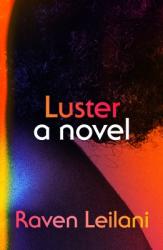
If it weren’t so gorgeously written, it’d be too wincingly real to read. I felt deeply connected to Edie in all her messiness and compulsive curiosity. Leilani’s characters are all their own: weird, self-possessed, sort of perverse, clearly loved into being.
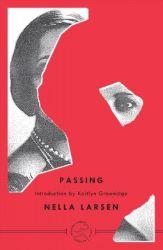
Passing by Nella Larsen is a classic novel following Irene Redfield and Clare Bellew. The novel follows the timeline of the Harlem Renaissance and delves into themes of 'white-passing' amongst the black community.
Irene, the narrator of the novel considers herself to be a very levelheaded, calm, thoughtful woman, who looks out for her children and is a perfectly attentive wife. Clare Bellew on the other hand is Irene's childhood friend, and her personality is much more colorful than Irene's. When Irene and Clare reunite after many years, we delve into their complicated relationship and clashing personalities.
Passing is a novel that illustrates what the standards of beauty really are and educates readers on the logistics of what passing of as white can mean for a black woman back in the 1920s.
I really enjoyed reading this novel, as 'white-passing' was something I wasn't super aware of, and barely even knew it was a phenomenon in the 1900s. Larsen also created a very interesting dynamic between Irene and Clare and crafted very realistic characters. I enjoyed reading Irene's inner monologues, as it's pretty rare to see an author build up very dynamic characters, that are also painfully human. I would recommend this book to pretty much anyone, as it contained lots of powerful messages and themes, without coming off as cliche or overdone.
Reviewer Grade: 11
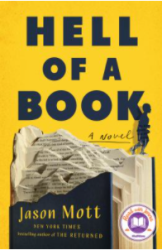
The premise of the book Hell of a Book by Jason Mott is as follows: an African American author has written a book and is touring the country to promote it. On his tour, he keeps encountering the same small child everywhere he goes. I can't say much beyond that without giving too much away.
This book recently won the 2021 National Book Award for fiction and I just don't think my review of it will do it justice. Not only that, but I hate writing overly exuberant reviews of books that are this unusual, because not everybody is going to love this book. Or understand it. But, that's the whole point, I think.
It's unusual. It's transcendent. It's elusive. It's ironic. It's deep. It's moving. It gives you tons to think about but very little to grasp onto.
I absolutely loved it. And I already want to read it again.
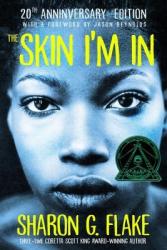
The Skin I'm In by Sharon G. Flake is a realistic fiction novel from the point of view of seventh grade Maleeka. Maleeka has low self-esteem and poor body image because of people teasing her for being too black and too tall. When Maleeka meets Miss Saunders, the new English teacher, who has messed up skin from a rare skin condition, Miss Saunders is taunted by the children. But, she never lets it get to her. Throughout the book, Maleeka rethinks her biases and her insecurities. This book's story is powerful, and there is a lesson to be learned through Maleeka's experience about overcoming low self-esteem. The author illustrates the problems of this century perfectly and guides the reader through a rollercoaster of emotions.
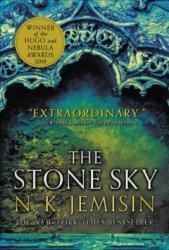
I have to say I’m a bit disappointed with The Stone Sky. It took me some time to get used to the way the author wrote the Broken Earth trilogy, but by the end of the second book, The Obelisk Gate , I had bought into the premise. The fact that this book had a lot to live up to with the foreshadowing presented in the second book might be why I’m disappointed with the result. After all, I was looking forward to some epic moments involving the moon, which didn’t seem to materialize for me. Now that I’ve finished this trilogy, I’m starting to wonder if the reason it didn’t quite fully click for me was because I was reading it via audiobook. There seemed to be a lot that I missed that would leave me confused about who the characters were, what they were doing, and why they were doing it. Perhaps if I had dedicated time to focusing on these audiobooks instead of listening while I was doing other things, I would have liked the series more. As it stands though, I probably couldn’t tell you what the point of this book was without going back and rereading it.
Ultimately, the Broken Earth trilogy is well written. The language might be a little too poetic at times and the fantasy setting introduces a lot of terminology that was difficult to keep track of, but I can see the appeal of it. The magic system is truly unique, even if the explanation for its origins made less sense than if it was just an unexplainable magic force. I do appreciate that most of the loose ends were wrapped up and either explained or made into moot points by the series’ conclusion. And while the resolution of this trilogy felt a little cliché, at least it provided an ending that most would come to expect from this type of sub-genre.
A pretty good trilogy wrap-up that might need a second read-through, I give The Stone Sky 3.5 stars out of 5.
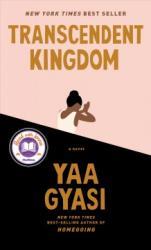
There was no sophomore slump for author Yaa Gyasi, who lit the literary world ablaze with her searing debut novel, Homegoing (2016). That work of historical fiction was deeply personal and her exceptional contemporary follow-up Transcendent Kingdom (2020) draws upon her experiences growing up with Ghanaian parents in in northern Alabama. This powerful and emotionally raw novel centers on Giffy, a fifth-year candidate in neuroscience at Stanford studying reward-seeking behavior in mice and the connections between depression and addiction. Her brother was a gifted high school athlete who died of a heroin overdose after a knee injury left him hooked on OxyContin. Her suicidal, deeply religious mother is bedridden. Dad left long ago. Giffy hopes science will find the why behind the suffering. But she still hungers for her childhood faith and struggles to find a balance between religion and science, hope and despair, living and inertia. It’s a personal journey with a conclusion that will leave you with hope, if not a clear answer.

I loved this book. Celie, Shug, Nettie, and Sofia were such strong women, facing a hard life and rising above it. Celie in particular has cemented herself in my mind as one of the great female protagonists in all of literature. I love how she didn't let her circumstances squash her spirit. I learned so much about a wide variety of things in this book. I learned a lot about Africa in the 30s leading up to WWII and the desecration of the tribal land by the English. I learned about the treatment of African American women by African American men and about their resilience and bravery. I loved the ending. Perfect.
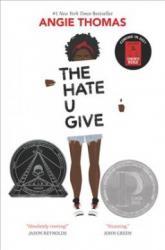
The Hate U Give by Angie Thomas is about Starr Carter who is constantly switching between her Garden Heights self and Williamson Prep self. She switches her speech, personality, and behavior to match where she is at. After a shooting with her childhood friend, Starr finds it increasingly difficult for both Starrs’ to remain separated. Angie Thomas does a wonderful job at making you love some characters, hate others, and at times make you feel genuinely uncomfortable along with an ending that will make you feel satisfied. All in all, I loved this book and at times could not set it down and would recommend this book with a 5 out of 5 stars.
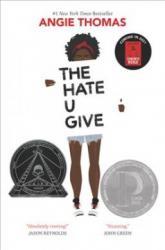
Starr is a sixteen-year-old Black teen living in Garden Heights. Although she lives in a poor neighborhood, Starr attends a private school in a predominately white affluent neighborhood. While Starr is at a party in her neighborhood, a shooting forces her to leave with her friend, Khalil. On their way back, they're pulled over by police, and when Khalil is asked to step out of the car, he's shot and killed. Following his death, Starr finds it increasingly more difficult to balance her two lives, and gains attention when she takes getting justice for Khalil into her own hands.
I loved this book! Besdies the fact that it addresses a real world issue, it was also full of the everyday and the mundane, which was a good balance to the overall conflict in the story. I also liked how the ending was realistic, even if it was sad. Starr is my favorite character because her story is an important example of how each of us has a voice that is valuable, and she also shows that advocacy doesn't always have to be through demonstrations or riots.
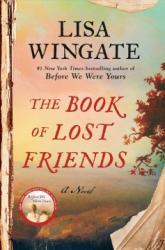
This book was not necessarily easy to read but it was so well done:it juxtaposes the two time lines and the main characters with aplomb and great sustained suspense. 1888 vs 1988 racism and the differences and the shameful similarities. Fascinating characters, great plotting and page turning suspense. Thought provoking and a really good read. Really glad I read this.
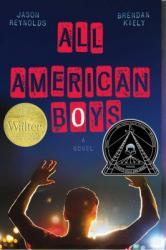
My friends told me about the tv show All American, so I decided to read the book All American Boys first. I thought it was the same thing at first, just one as a book and the other as a movie, but it isn't. Both have different plots and stories even though they both talk about racism.This book is about police brutality and racism from the eyes and perspectives of two young high school boys. It's a very emotional and sad book even though it could be and was very true in the past and still in the present. This book strongly mixes up your emotions into a twist but overall, is a really good book. The book starts with Rashad getting beaten up by cops and Quinn seeing the whole thing, starting their fight for justice.
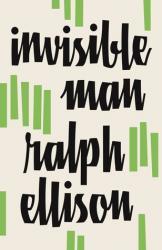
Ralph Ellison's Invisible Man is an essential American classic. Written in the late 1940s, it tells the story of a young African American man who moves north during the Harlem Renaissance and faces many trials as he attempts to find his place in society. This novel is a candid portrayal of life for Black Americans in the pre-Civil Rights era, exposing the hardships and prejudices that are often overlooked in retrospect but were all too real for Blacks during this time. It is honest, reflective, and blunt; often unsettling and disturbing. A central theme of Ellison's novel is the idea of blindness and how it affects identity. The protagonist is left confused and misguided as a result of the blindness of those he encounters, trying to fit into the expectations of others, until at last he realizes that he is, and has always been, "invisible" to society. With this revelation, the invisible man at last finds his own identity.
The novel recounts all of the events leading to the protagonist's discovery of his invisibility, beginning at his colored college in the south and taking the audience north to Harlem. The protagonist faces many different circumstances which reveal just how marginalized Blacks were in the United States in the 30s; each episode is a testament to the challenges faced by African Americans (even a reflection of the challenges faced by African Americans today) due to the blind discrimination of white people. Each incident faced by the invisible man is largely a reiteration of previous ones, merely taking place in different circumstances, which emphasizes his lack of identity--even his own blindness. Eventually, due to an unfortunate incident, the protagonist loses all sense of who he used to be, and this is what allows him to begin to make change--for better or worse. There are numerous violent and suggestive scenes in this novel, so I would recommend it to older, more mature teenagers.
Ellison takes his readers on a powerful, enlightening journey with Invisible Man. His compelling writing is intertwined with tragic humor and soulful undertones of blues and jazz, the backdrop for an incredibly raw and moving novel. The invisible man's story is very relevant to society today, and Ellison's messages should serve as reminders to us all. I believe every American would benefit from reading this novel at some point in their life; it illustrates such an important part of our nation's history, and that of African Americans. Ellison portrays the protagonist's emotions with such introspective depth, every conflict and thought explored in all its complexities. Invisible Man may not be a particularly fun read, but it is important and it is worthwhile.
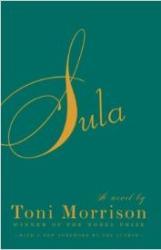
Sula, by Toni Morrison, was published in 1973. The book focuses on a black neighborhood and a friendship that develops between proper and traditionally raised Nelly and free spirited Sula. The two become very close; going on adventures and making huge mistakes throughout their adolescence, until they eventually grow apart. The novel, written by a Nobel Prize winner, is a star example of enriching African-American literature. Beautifully written, shocking, and yet also endearing, it takes readers on an insightful trip to Medallion, Ohio - one full of excitement and symbolism for modern themes.
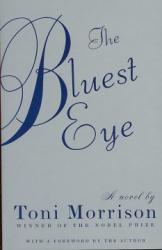
The Bluest Eye is about a young African-American girl named Pecola living in 1940's Ohio. Pecola lives with her brother and abusive parents who constantly tell her she is ugly because of her dark skin and kinky hair. On top of that, the children at her school bully her for the fact that her father is an alcoholic. All her life, Pecola has wanted blue eyes to feel pretty. Her only friends, Freida and Claudia try to defend her against the colorism in their community, but Pecola is unable to embrace her features and becomes obsessive over her desire for blue eyes.
One of the reasons I read this book is because of Morrison's writing style and her thematic elements. The book is very intellectually stimulating and gave me better insight into colorism and how it is still largely prevalent today in the African-American community. I really liked how Morrison used a young girl as a main character to show how these feelings of low-esteem and poor body image are started at a young age, and how the people around us influence our thoughts and feelings.
There are a lot of complex characters and you get to hear each of their stories about why they're the way they are. Claudia is my favorite character because she represents women and girls who challenge our ideas of beauty. The ending was sad, but it really brought light to how damaging our obsession with beauty is.
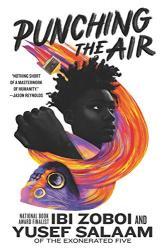
Yusef Salaam is one of the "Central Park Five", young men of color who were incorrectly accused of raping and beating a woman jogging in Central Park in the late 80s. After the five had served their sentences of 5-15 years, they were exonerated when the real culprit came forward. This book is clearly heavily inspired by Yusef's story as it tells the story of Amal, a teen in prison for a similar crime that he did not commit. It starts with the conviction and then moves into Amal's experiences in a juvenile detention center.
Every year, there's a book that I promote really heavily in classrooms. This will definitely be that book. It's so good. So sad. So spare in that way that only books in verse can be. It takes a while to read, because sometimes you just kind of have to sit with it for a while to process it. It does such a great job of illustrating just how deeply flawed and racist our "justice" systems are. I dare you not to empathize with Amal. I can't wait to share this important book with everyone I know! Also, like, that cover y'all. So pretty. And it's relevant to the story! Anyway, consider this required reading, especially for all the folks trying to "read woke". 5 stars.
Thanks to Edelweiss and Balzer + Bray for the eARC which I received in exchange for an unbiased review. Punching the Air is out 01 September - put your copy on hold today!
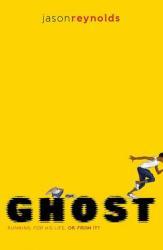
I had taken a break from reviewing books until I read Ghost. This book is really well written. The narrator is believable and the plot illustrates his struggles and growth. Ghost is a troubled kid who stumbles onto a track team and turns his life for the better. I both loved and hated the ending, because it was so good but I didn't want the book to end. Great quick read. I highly recommended giving it a whirl.
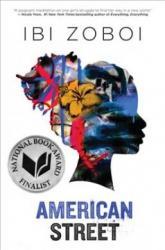
American Street is about a girl named Fabiola who moves from Port-Au-Prince, Haiti, to Detroit to see her aunt and cousins. When Fabiola and her mom get to New York to go on there connecting flight to Detroit her mom got held back
in New York while Fabiola goes on to Detroit. Once she gets to Detroit and gets to her cousins house she finds out that her mom wasn't coming to Detroit because of immigration laws. So she stays with her cousins Chantal, Donna, and Pri and her aunt Jo till she can figure out how to get her mother to come to Detroit. Fabiola enrolls in school and struggles to adjust to America. She grows close to her cousins who were known as the "Three Bees," Pri is the brawn of the group, Chantal is the brains, and Donna is the beauty and together they made a good team. Fabiola becomes friends with a classmate to get help with homework and stuff. They slowly become fast friends. Slowly she falls in love with a boy named Kasim who was best friends with Donna's drug dealer boyfriend, Dray. Finally, she figures out that Kasim went to a party to sell drugs for Dray and something bad happened that left Fabiola and her cousins heartbroken. In the end Fabiola, Pri, Donna, Chantal, and Aunt Jo moved away from Detroit for good and left for New Jersey.
Something that I liked about this book is that it was moving and heartbreaking but still a beautiful piece of literature. Something that I didn't like about the book was that Dray and Kasim were friends because they were so different and Dray wasn't a good guy but Kasim was a good guy. I usually don't like books like this but this one was so passionate and moving that I had trouble putting the book down. Another good thing about this book was that the plot didn't take awhile to develop and Fabiola changed a lot with her visit to America.
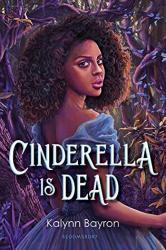
Cinderella is dead is about a girl in a society where women are expected to behave like Cinderella in the beloved (well, they're forced to love it) fairy-tale: wait until you're somethingth birthday and then you must go to a ball to be chosen by a boy/man/grandpa who you will be forced to obey for the rest of your life. Those who refuse are executed. When our main character falls in love with another girl instead of waiting to be chosen at the ball, she decides it's time for a change.
I saw this book ages ago on Netgalley and while I love the cover (and don't be afraid to chose a book by it's cover, kids!), I'm pretty over anything to do with Cinderella as I feel as though I've read around 8 million re-tellings in the last five years or so. Then, I heard some folks from Bloomsbury talk about this book at a recent conference, and I was sold! Unfortunately, though, there was way too much Cinderella in it for me to truly enjoy it. The worldbuilding and plot waffled between being creative and a bit silly. The characters were one-dimensional and the romance unearned. That said, I think the book's audience, younger teens, will enjoy it, so I'll definitely be recommending it.
This is the perfect book for younger teens who just can't get enough of Cinderella or who are looking to make the jump from middle grade to young adult fiction. For this older reader, the coolness of the author's innovation with the Cinderella fairytale was outweighed by bland characters and forced romance. 2 stars - it was ok.
Thanks to Bloomsbury YA and Netgalley for the eARC which I received for an unbiased review. You can put Cinderella is Dead on hold today!
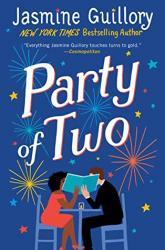
Olivia Munroe has just moved to LA, and finds herself frequenting her hotel's bar as she navigates the rental process in LA. On her last night in the hotel, she meets a sexy stranger at the bar. They have a cute interaction, but go their separate ways. Olivia is stunned when she realizes the sexy stranger was in fact Max Powell, a hotshot junior senator from CA. The two have another chance encounter, and this time continue to see each other. But is Olivia ready for life in the public eye?
This is my second Jasime Guillory book (The Wedding Party was my first), and I obviously liked the first enough to read this one, but I liked this one so much more! Olivia and Max were just such great characters, I fell in love with both of them pretty quickly. There's also some topical information about relations between the Black community and the police and politics at large, so that was super timely to read and adds an extra dimension to what would otherwise be a fluffy book. Really, aside from a couple of plot aspects that annoyed me personally, the only thing that bothered me was the lack of sex! Where is the sex?!?! There was soooooooo much sex in The Wedding Party that I expected a bunch here as well and was disappointed by it's absence, especially as I connected with these characters a little more.
I would generally recommend this to women's fiction readers, especially those who are looking for a slightly lighter way to read woke. 3.5 stars - it's somewhere in-between "I liked it" and "I really liked it" for me.
Thanks to Netgalley and Berkley Books for the eARC that I received in exchange for an honest review. Party of Two is available on 23 June.

I’ll admit that reading The Fifth Season had a bit of a learning curve for
the Broken Earth series. Not only did I have to learn about the vastly
powerful magic system based on rocks (and other rock forms), but I had to get
used to a second-person point of view (POV). Jumping between timelines with
similar characters who had different names was a bit confusing, but I was
able to figure it out by the end. Fast forward to the sequel, The Obelisk
Gate, and most of my qualms with the first book were smoothed over or solved
outright.
One of the things I enjoyed about The Obelisk Gate was the increase in the
scale of the magic system. Including the moon in these calculations makes
perfect sense considering the nature of the orogeny magic. I also appreciated
how the story seemed to focus on a single POV, which made for a more intimate
experience as we followed only one or two individuals instead of four. Now
that I was used to the second-person writing style and the character it
described, it didn’t bother me as much as when I read The Fifth Season.
While The Fifth Season set up the world-building for this trilogy, The
Obelisk Gate’s only weakness is that it finally set up the climactic plot
for the third book. Sure, there was plenty of character development and
intriguing twists in the plot in The Obelisk Gate, but they all seemed to be
hinting at something much more significant that wouldn’t take place in this
book. I do appreciate an excellent three-act structure, so this slight
weakness can be seen as merely an artifact of the second book in a trilogy.
In fact, because it was more focused, I liked this book more than its
predecessor. After all, it’s a strong concept with solid execution.
A focusing and foreshadowing of the Broken Earth series, I give The Obelisk
Gate 4.5 stars out of 5.
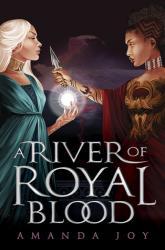
Eva's nameday is coming up. And on that day, she'll become a Rival Heir. From then on, she'll be expected to try to kill her sister (or die in the process), so that one of them could take the throne. Eva's always been her father's favorite, but in this matriarchal society, her mother, the Queen, who, of course favores Eva's sister Isadore, would do anything to make sure that Eva doesn't get the throne. Including helping Isa with her magic while trying to keep Eva from accessing hers. But the throne is Eva's destiny. It's that, or death.
This was another instance of the plot being hard to describe, though that's mostly due to the fact that there are so many things happening in this book. It's pretty complicated. Not in a bad way - I really enjoyed it. The worldbuilding was very cool, I loved the khimaer. A lot of it was new to me, or a fun twist on a familiar concept. I loved the book's mythology. Something about it felt fresh. I also bizarrely really liked the middle part of the book - its full of layered mysteries, court intrigue, training montages and the right amount and type of romance. It's built on mutual and earned respect (and yes, hotness). There's a lot to like in this book, and it won't be the last by this author that I read.
That said, the beginning and ending were rote and felt a bit weak. The end, in particular, felt like it existed only to get you to read the next installment. There was no resolution, and it felt very rushed, especially after a story that was otherwise taking its time unfolding. I don't want to spend a lot of time criticizing what was otherwise a fun read - give it a go!
TLDR: This was so close to being really good, but it just missed the mark (rote beginning and ending, super strong middle and worldbuilding). I quite enjoyed it, nonetheless. 3.5 stars - I almost really liked it. :)
Thanks for the eARC Netgalley and Putnam for the advance copy! A River of Royal Blood will be available for purchase on 29 October, but you can put your copy on hold today.
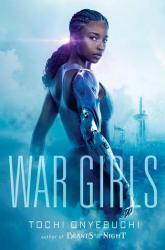
Onyii and Ify live as sisters in an all-girls refugee/war camp on the edge of the Redlands, an area riddled with radiation from a long-ago nuclear disaster. Nigeria, their home, is in the midst of a civil war. Children are conscripted as soldiers and pilots for mechanized warrior robots. Onyii and Ify are separated, and as truths are revealed to each of them, they must decide where, and with whom, their loyalties lie all while trying not to die a terrible death in a bloody civil war.
Going into this, I knew nothing about the Nigeria - Biafran civil war of the 1960s, which is at the heart of this novel. Personally, I enjoy learning about parts of history that I know nothing about (I typically don’t gravitate to one of the 1,983,784,767 WWII novels, for example), and I really enjoyed the unique setting. The book is set in the future, and the futuristic elements really added a lot to the plot and were well employed by the author. Onyii, for example, is an Augment, meaning that she’s a little bit of a bionic woman. While I didn’t really relate to the main characters, I did really like them. They didn’t always make the best decisions, but their decisions made sense to their characters and their respective arcs. They were easy to root for. Really, my only complaint was that it felt overlong, and I skimmed through some of the battle scenes, but that’s more a matter of personal preference.
TLDR: Looking for something to read after Children of Blood and Bone? You’ve found your next great Nigerian inspired read! (And, honestly, if you haven’t read Children of Blood and Bone but it’s on your TBR, I’d suggest replacing it with War Girls, which is a much more original, engaging book). For readers who like apocalyptic novels and futuristic sci-fi battles. 4 stars.
Thanks to Netgalley and Razorbill for the eARC which I received in exchange for an honest review. War Girls will be available for purchase on 15 October, but you can put your copy on hold today!
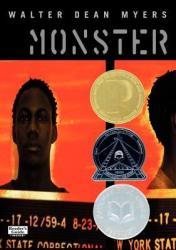
This book is an interesting and suspenseful novel. It is filled to the brim with moments that will have readers on the edge of their seat. Monster also is written in a unique format, in the form of a movie script written my the protagonist Steve Harmon, who is awaiting trial for a crime he didn’t commit. This story is written with intense figurative language that paints a terrifying image depicting the horrors of prison. I highly recommend it to anyone looking for a great suspenseful read. Reviewer Grade: 7
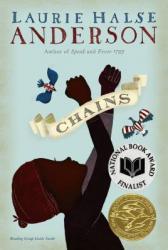
Isabel Finch is a slave girl and belongs to Miss Mary Finch. When Miss Mary Finch dies, she and her younger sister Ruth must travel away from Rhode Island and to New York where they are bought and serve a new master. This master is a strong loyalist and Isabel finds herself trading information about battles and invasions to the local patriot camp in New York. I loved this book because it showed bravery and the injustice of slavery for young girls. I would fully recommend this book to anyone who has a heart for historical fiction.